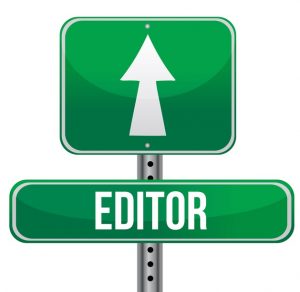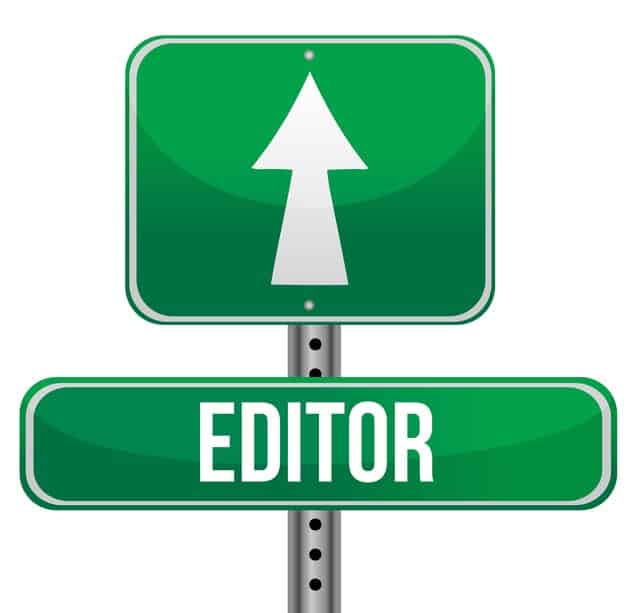
From the past two posts, you know that you need an editor, and you know what to look for in an editor. Now, let’s talk about how to find the right editor for you and your manuscript.
- Make a list of what you want in an editor using the previous post as a guide and adding anything else important to you.
- Look at the acknowledgments page of books similar to yours that you enjoyed. Often authors will thank their editors, and someone who did a good job on a book in your genre is a good candidate to edit your book.
- Ask other authors for recommendations and information about editors they have used.
- After you have a list of several editors to consider, look up their websites. Most will have information about services and fees as well as books they have edited.
- Contact each editor and ask for a sample edit and price quote. Recognize that the price quoted is usually based on the rest of the manuscript needing the same amount of work as the sample edit. If you quit self-editing halfway through the book and the second half is filled with grammar errors, the editor may renegotiate. However, if what you submit for the sample is comparable to the complete manuscript, the editor should be able to give you a firm quote.
- Review the sample edits and quotes. If you don’t like the way an editor works or the editing changes she suggested, you can eliminate her at this point. Remove an editor from your list only if you’re convinced she won’t meet your needs. Otherwise, continue to keep her on your list of potential editors.
- Contact the editor to discuss your project. Although email is great for the initial contact and quote, I recommend you phone the editor to get acquainted. Remember, if you’re working on a book-length project, you will be working closely with this editor, and you should feel confident that it will be a comfortable working relationship. Also make sure you understand exactly what services the editor is providing. Will the editor simply correct spelling, grammar, and usage errors or will she also point out plot problems in a novel or confusing information in a nonfiction book?
- If the editor doesn’t have books she has edited listed on her website, ask for references. Try to make contact with authors of books in your genre. Ask about the quality of the editing and the ease of the process.
- At this point, you may have made a decision. If one candidate stands out and you are comfortable working with that person, you have your editor.
- If you are still undecided, compare the lists of what you want in an editor with the list of editors. You may want to rate the editor on each important point, or you may be able to tell who you want without going through the rating step.
- Have a written agreement with the editor. The editor may have a standard form, or it can simply be a listing of what the editor will do, the time frame in which it will be done, the fees, and payment arrangements. Although both of you have the best intentions, sometimes disagreements arise because of differences between what the author expected to receive and what the editor expected to deliver.
I must confess, I doubt any of my clients have followed these steps to find an editor. Most of my clients come to me via word of mouth and never talk to another editor. I’m honored by their trust in me. I always do the sample edit for first-time clients to be sure the author likes my work and also to determine how much time the project will take. That ensures that the price will be fair for both the client and me.
If you would like a sample edit and quote for a manuscript, download the information for clients and email me for the questionnaire to send along with the pages for the sample and the synopsis or chapter summary. I’ll be happy to take a look at your project so we can mutually determine if I’m a good match to edit your book.
Image: © Depositphotos.com/alexmillos

